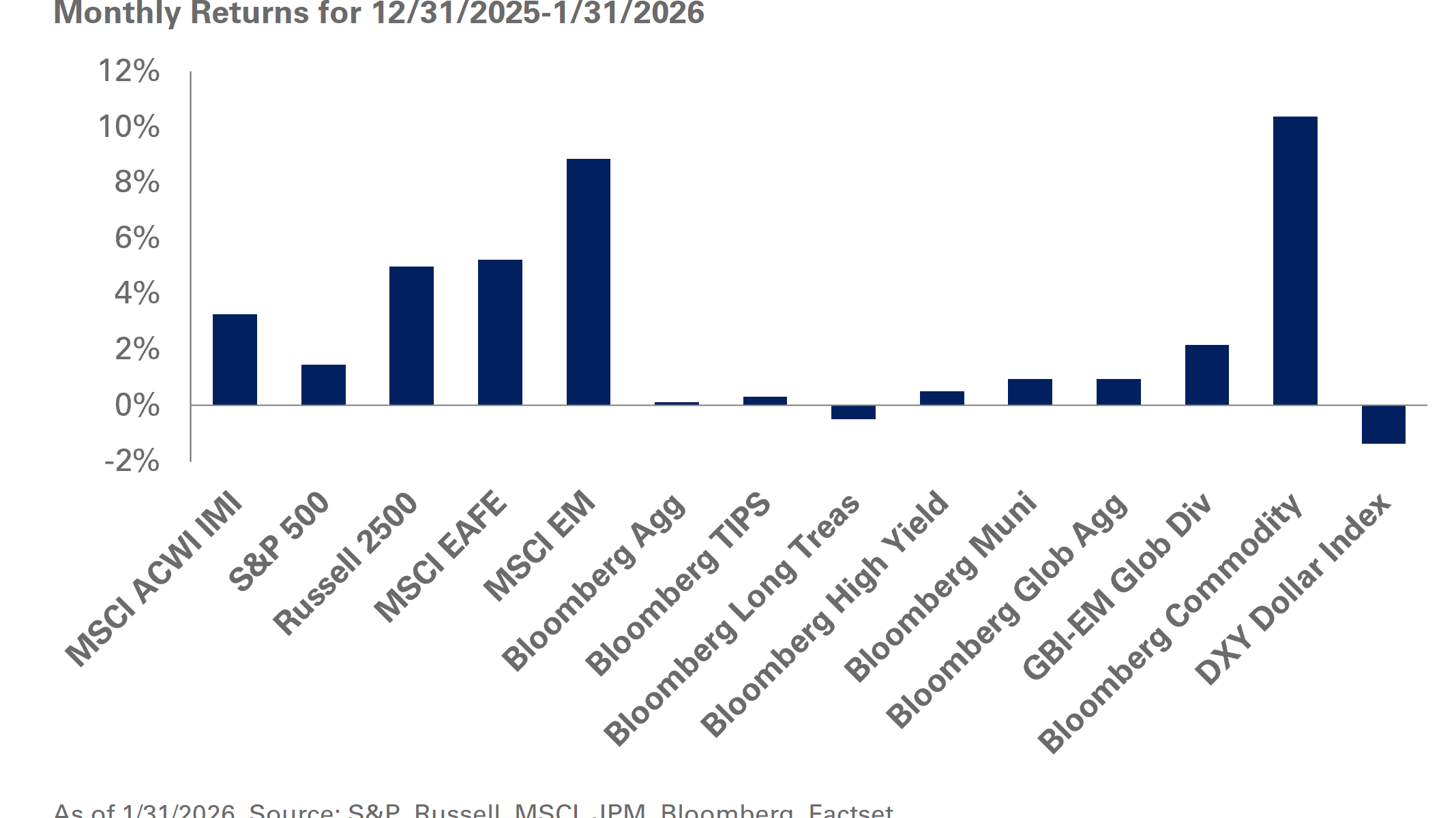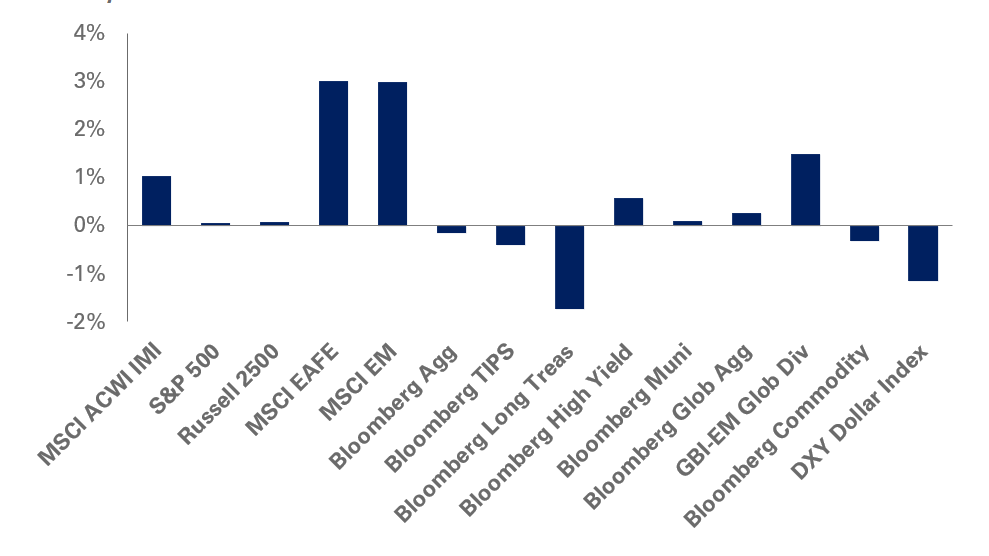The U.S. federal government shut down Wednesday after Congress failed to reach an agreement around federal spending. NEPC’s Jennifer Appel, Principal, Senior Investment Director, Asset Allocation fields questions on the deadlock in Congress and the impact of the shutdown on the economy and investment portfolios.
1. What is the economic impact of a government shutdown?
The economic impact of a government shutdown is often temporary and muted. It will depend on the scope of the shutdown—full versus partial—and its duration.
The GDP report may reflect reduced household and government consumption as government services, federal spending, and employee pay are halted. Similar to the impact of a natural disaster, the majority of the lost GDP is expected to be recouped in subsequent quarters as operations resume. Also, government shutdowns may temporarily weigh on business and consumer confidence.
2. What are some of the concerns around the government shutdown?
The primary concern is that the government shutdown may be somewhat protracted in 2025. The longer the duration of the shutdown, the greater the risks and the disruption to the economy. Expiring subsidies of the Affordable Care Act (ACA) have become a point of contention in funding discussions and may prolong negotiations in Congress through the shutdown.
3. Are there any unique aspects to the current shutdown relative to history that investors should be aware of?
Yes – following a credit ratings downgrade for the U.S. government earlier this year, we anticipate investors will be largely focused on the reaction of U.S. Treasuries against the fiscal backdrop and uncertainty around near-term Fed policy.
In addition, the quality of economic data has already come under scrutiny in 2025. Challenges around data collection or delays stemming from the government shutdown may aggravate existing issues and potentially complicate the Federal Reserve’s decision making in the near term.
4. What should investors be doing in this environment?
We encourage investors to remain invested amid market volatility stemming from the government shutdown. Shutdowns often create noise and volatility for markets in the near term but tend to have little impact on long-term returns. Should volatility measures increase, we advise investors to remain disciplined and be prepared to act should opportunities present themselves.



